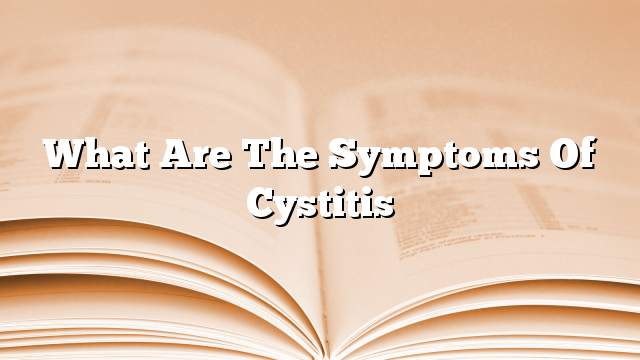Cystitis
Cystitis is a common type of urinary tract infection, often caused by a bacterial infection, and most of the cases are caused by E. coli bacteria that live naturally in the human digestive system. Bladder inflammation affects women more than men. One study reports that about one in five women have bladder infection during their lifetime. The increase in the number of women infected is due to the short length of the tube that carries urine out of the bladder in their bodies compared with males, Its proximity to the anus, which facilitates the entry of bacteria into the bladder.
Infections of cystitis are often mild and the patient is cured within days without resorting to any medical procedure, thus causing more discomfort to the patient than serious complications. If the patient has recurrent cystitis, he or she may become susceptible to nephritis Severe infections that may pose a risk to the patient’s life, which require the patient to undergo regular treatment for a relatively long period to fight this inflammation.
Symptoms of cystitis
Often, cystitis causes many symptoms. Although some of these symptoms are similar to those associated with other types of infections and diseases that affect the urinary tract, many of these symptoms are specific to cystitis. The symptoms of cystitis are as follows :
- Feeling pain or burning when urinating.
- The need to urinate constantly, and this feeling may come suddenly.
- Suffering from urination for young children during the day.
- Exits blood with urine. This may appear as either red blood appearing in the urine, or the urine becomes dark.
- Pee a few amounts of urine and frequent.
- Feeling light pains in the pelvis.
- Feeling of pressure at the bottom of the abdomen.
- Paul’s exit is more intense than usual, and may have a strong and luxurious odor.
- The temperature of the patient’s body is relatively high compared with the high incidence of nephritis.
Types of cystitis
The type of inflammation is determined according to the underlying cause, and can be divided according to the pattern of inflammation. The inflammation that occurs suddenly and the symptoms persist for a short period called acute type, but if the symptoms persist for a long time, the type of inflammation is chronic, Of the bladder. The most common types of cystitis are as follows:
- Bacterial Cystitis: Is the most common type of cystitis, and most cases of E. coli bacteria, and it is necessary to treat this inflammation to prevent the aggravation and spread to the kidneys.
- Cystitis caused by medication: The most prominent of these are cyclosophosphamide and ivosphamide, which are used in chemotherapy for cancer. When these drugs are taken, their residues are discarded through the urinary system, and when they reach the bladder they cause irritation and inflammation.
- Cystitis caused by the entry of an external body: The most common cases are urinary catheterization, which is one of the most common medical procedures, including insertion of a tube through the urethra to the bladder. This tube increases the chance of bacterial infection, and may damage the bladder tissue, exposing it to inflammation.
- Cystitis after radiation exposure: When radiation therapy is used to treat cancer and eliminate tumors in the pelvic area, it may expose the bladder to irritation and inflammation.
- Cystitis associated with other diseases: Cystitis may occur as a result of suffering from other conditions, notably diabetes, HIV / AIDS, kidney stones and prostate gland enlargement.
- Cystic Bladder Infections: Some of these substances cause irritation of the bladder, especially those found in contraceptives, such as ointments placed on the protective membrane used by women, as well as spermicide preparations, as well as some substances used in the bathtub.
Treatment of cystitis
Most cases of cystitis are treated with a bacterial infection through antibiotics. Other treatments are treated with the underlying cause. Cystitis may disappear in many cases without treatment, but in this case the symptoms may last longer. Cystitis methods are as follows:
- Antibiotics: The most common types of antibiotics used to treat cystitis are nitrofurantoin and trimethoprim, which are taken as oral pills. The treatment lasts between three and five days. The patient usually feels better within a short period of up to one day after starting treatment. That pregnant women infected with cystitis should be treated with antibiotics to prevent the occurrence of many serious complications.
- Asylum: In some cases surgery may be required either to treat cystitis or to try to repair damage to the bladder as a result of inflammation.
- Follow the home treatment: The procedure used at the time is associated with other treatment methods. Home remedies for cystitis include painkillers and antihypertensives such as paracetamol, ibuprofen and acetaminophen, as well as the use of hot bandages by placing them on the lower abdomen or back to relieve pain. Many doctors are advised to multiply Of drinking fluids to help relieve bladder irritation and improve the discharge of urine and waste, in addition to avoid eating some foods and drinks that irritate the bladder.
